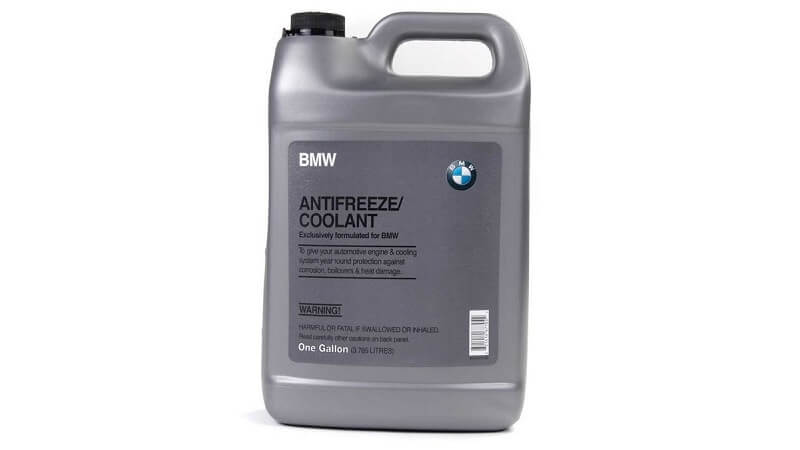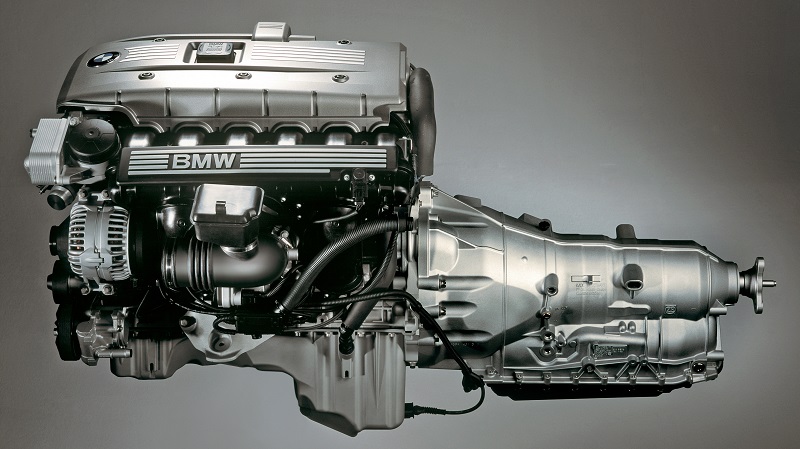The BMW 7-Series has been the German manufacturer’s flagship offering since the lineup made its debut over four decades ago. In April 2022, BMW took the wraps off the seventh and latest generation of the full-size luxury sedan, set to go on sale later this year. Until the G70 7-Series comes about, the iteration of the car that’s currently on sale, the G11 7-Series, is one of the most technologically advanced cars out there.
Today’s 7-Series cars are at the very pinnacle of luxury sedans and offer a suite of features one probably could not have imagined possible on four wheels even just a decade ago. The 2023 BMW 7-Series will undoubtedly be an exceptional car, but it also comes with a significant shift away from the German manufacturer’s current design language.
If you’re not a fan of what’s in store, the 2021 BMW 7-Series offers nearly as much tech and performance while retaining the styling we’ve accustomed to over the last few years. A pre-owned iteration will also cost you less than a brand new 7-Series.
Here’s all you need to know about the 2021 BMW 7-Series, from available variants and optional packages to some of the issues you might have to deal with.

2021 BMW 7-Series — The Best So Far
It’s impossible to imagine where BMW would be without the influence the 7-Series has had on its success. From the BMW E38 7-Series, people grew to expect only the best solutions from BMW in this class. And that is exactly what they’ve received. The Bavarians have put everything they have to offer into every generation of the 7-Series, and it’s traditionally the model that BMW uses to introduce a new design language or technology. If there’s something you admire about a BMW, it likely trickled down from the BMW 7-Series. The 2021 BMW 7-Series is no different.
One nifty feature that it offers is the BMW Intelligent Personal Assistant. The voice-activated system gets smarter with every interaction and is as close to having your own personal J.A.R.V.I.S. as you can get in a car. The system offers a plethora of features to make your driving experience easier and more enjoyable. You can ask it to set course to a particular location, adjust the air-con, or even check tire pressure.
Some other notable features on the 2021 BMW 7-Series include kidney grille shutters that open only when increased airflow to the engine is required, self-leveling air suspension with electronically-controlled shock absorbers, and BMW’s four-wheel steering technology dubbed Integral Active Steering.
Available Powertrain Options
With the comfort and features it has to offer, the 2021 BMW 7-Series is, perhaps, a car that’s best enjoyed as a passenger. However, if you prefer not to be chauffeured around, the 7-Series offers some excellent engines that make it just as splendid a machine to experience from the driver’s seat.
The 2021 BMW 7-Series was sold with multiple powertrain options, but only a select few were made available in the North American market. Over here, the car was available only with petrol engines — an inline-six (BMW B58), a V8 (BMW N63), and a monstrous twin-turbo V12 (BMW N74). Internationally, the 7-Series was also sold with an inline-four petrol engine and several diesel options.
The G11 is the first 7-Series generation to feature a plug-in hybrid variant called the 740e iPerformance. This car never made it to American shores, but a BMW 745e plug-in hybrid that was introduced shortly after did. Listed below are the specifications of the engines available with the 2021 BMW 7-Series in the U.S. market:
- 3.0 L inline-six turbo B58 in BMW 740i, producing 322 hp and 332 lb-ft of torque.
- 3.0 L inline-six turbo B58 with electric motor in BMW 745e, producing 389 hp and 443 lb-ft of torque.
- 4.4 L twin-turbo V8 N63 in BMW 750i, producing 523 hp and 553 lb-ft of torque.
- 4.4 L twin-turbo V8 N63 in Alpina B7, producing 599 hp and 590 lb-ft of torque.
- 6.6 L twin-turbo V12 N74 in BMW M760i, producing 602 hp and 590 lb-ft of torque.
The 2021 BMW 7-Series is also available in an extended wheelbase version, where the ‘i’ suffix in the model names is replaced by a ‘Li.’ While the BMW 740i can be equipped with the manufacturer’s all-wheel-drive xDrive tech as an option, the other variants get the feature as standard. The entire range in our market is equipped with an 8-speed Steptronic ZF automatic transmission. This transmission can be optionally linked with the satellite navigation system to adjust shift timing based on geographical data — how cool is that!
Which Engine Should You Get?
If you’ll spend most of your time being driven around in the backseat of your 7-Series, the BMW 740i with the B58 engine should offer you more than enough performance. It’s certainly not the most exciting engine with which the 2021 BMW 7-Series is available. Still, it checks a lot of the right boxes for a luxury sedan — it’s smooth, reliable, and returns decent fuel efficiency.
The BMW 745e plug-in hybrid model is powered by the same engine but also features a 12 kWh battery pack. This battery provides up to 16 miles of electric-only driving and doesn’t improve overall efficiency significantly. Unless you’re keen on investing in the technology and reduced emissions, you’re better off opting for the more affordable BMW 740i.
On the other end of the spectrum, you’ll find the BMW 750i xDrive and the M760i xDrive. The former comes with an impressive twin-turbo V8, while the latter employs BMW’s phenomenal V12 powerhouse. These are proper drivers’ cars that stay true to the German manufacturer’s “ultimate driving machine” ethos. Both these cars offer oodles of performance that you’ll never get tired of, especially with the M760i xDrive. It may not be a pure M-car, but there’s enough under the hood to leave a lot of sports cars in the rearview mirror in a straight line.
2021 BMW 7-Series Interiors, Design, and Features
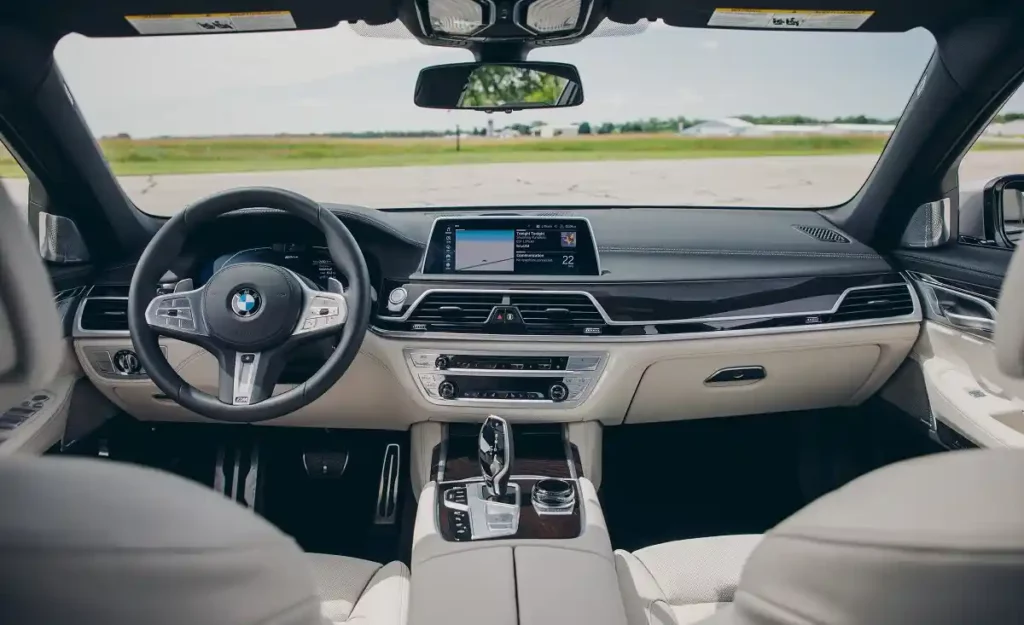
Like the previous model year cars, the 2021 BMW 7-Series is based on the manufacturer’s CLAR platform, which uses a carbon-fiber-reinforced polymer in the structural components of the chassis. BMW has also used tensile steel and aluminum in its construction to keep weight low and increase structural strength.
While this has resulted in a more structurally rigid car, it has also translated to the BMW 7-Series feeling bulky and long. Unless you’re opting for the BMW 750i or the M760i, you’ll find that the stock suspension on the lower-end models doesn’t do a good job at mitigating the car’s significant dimensions. On the flip side, it works exceptionally well at offering a plush, comfortable ride.
Moving on to the car’s interior, you’ll find that the German manufacturer has crafted everything you can see and feel with a level of bespoke quality you’d expect for the price you’re paying. Some of the 2021 BMW 7-Series’ rivals outclass the car in certain aspects of the interior, but overall, there’s a lot to like and little to complain about.
The seats feature luxurious leather upholstery, and the large-screened infotainment system is powered by the latest version of BMW iDrive. The more expensive models also get two Samsung tablets for the rear passengers.
For 2021, BMW also offered heated front seats and armrests, a heated steering wheel, a built-in dash cam, and remote start as standard equipment.
Optional Equipment and Packages
The 2021 BMW 7-Series comes with several features and technology as standard, as you’d expect from a flagship BMW. This includes BMW’s Active Driving Assistant suite, which comprises forward collision warning, blind-spot monitoring, lane departure warning, automatic high beams, and front automatic emergency braking.
You also have the option to equip the car with optional packages that bundle multiple features and equipment. For the 2021 BMW 7-Series, you can select from the following:
Driving Assistance Professional Package
The Driving Assistance Professional Package comes with the Extended Traffic Jam Assistant and the Active Driving Assistant Pro.
We recommend opting for this package as the Extended Traffic Jam Assistant adds partially automated steering input on select roadways up to 40mph. Meanwhile, the Active Driving Assistant Pro brings camera and radar-based driver assistance systems like Lane Change Assistant, Lane Keeping Assistant, Evasion Aid assist, and Emergency Stop Assistant.
The safety warnings accompanying the package can sometimes be intrusive and loud, and many owners often choose not to equip their vehicle with it. However, they increase safety, so it’s definitely worth considering.
Rear Executive Lounge Seating Package
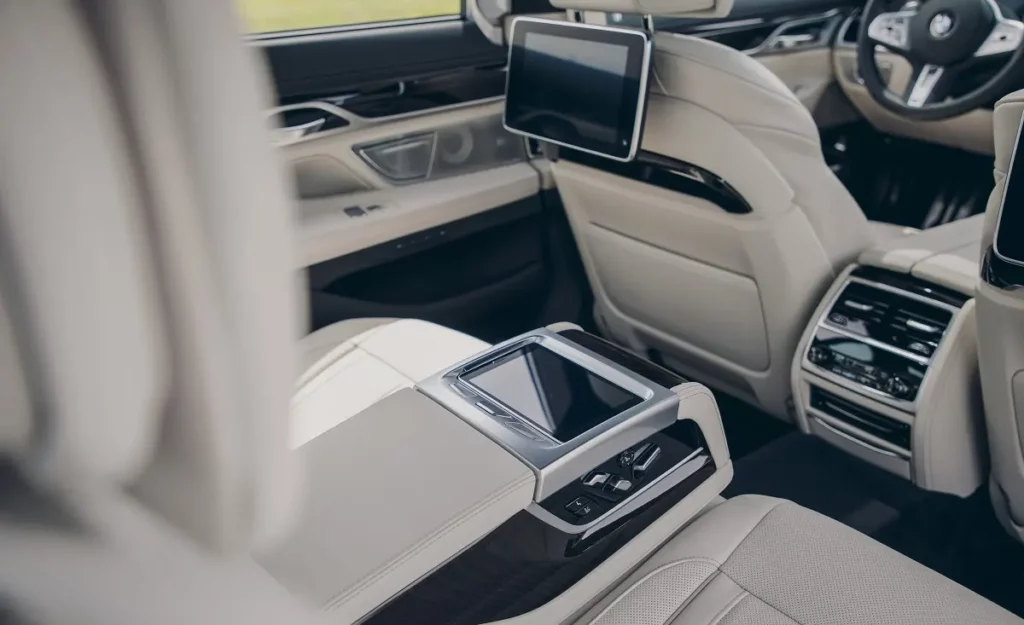
As the name suggests, the Rear Executive Lounge Seating Package ups the comfort and features you can access from the second row of the 2021 BMW 7-Series. It includes an electric reclining seat and footrest and a center console that allows you to control rear seat entertainment.
BMW Individual Composition
The BMW Individual Composition package is one of the more expensive options to equip your 7-Series with. Essentially, it lets you customize your car’s interior to your liking. You can choose between premium Anthracite Alcantara Headliner, Piano Finish Black trims, individual door-sill finishes, a Merino leather upholstery for the steering wheel, and several other design elements.
M Sport Package
The M Sport Package, as one expects, is for someone looking to extract a sportier feel from their 7-Series. It includes an M Sport exhaust system, 19-inch M Double-spoke wheels with run-flat tires, a different interior trim, more aerodynamic bodywork, M door sills, M footrests, and several other M sport design elements.
Is the 2021 BMW 7-Series Reliable?
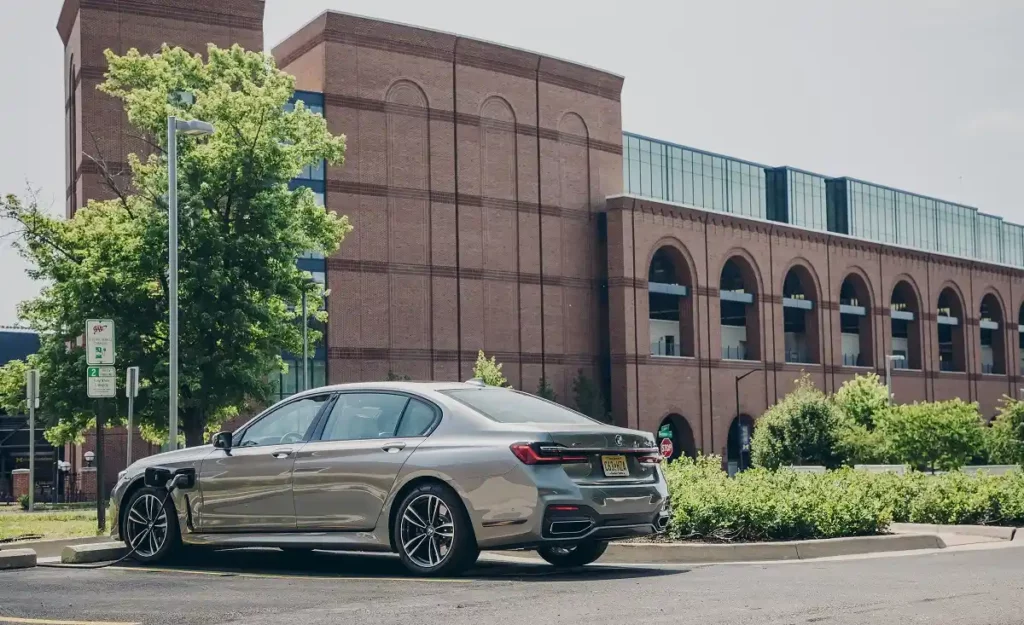
The 2021 BMW 7-Series is still less than a year old; however, the model has been nearly unchanged since 2015. In this time, it’s proved to be a reliable machine that properly encapsulates the superior quality of engineering BMW is capable of. If you check forums for ownership experiences, you’ll find that most reports of problems are related to minor inconveniences rather than full-blown issues that temporarily render the car unusable.
This is especially true with the BMW 740i model that uses the B58 engine. BMW is most renowned for its excellent inline-six engines, and the B58 is one of the most reliable motors it has produced.
While the B58 came out only in 2015, the V8 BMW N63 and V12 BMW N74 have been around for notably longer. Both these engines had a slightly problematic past, but the engineers have ironed out most, if not all, of their significant issues. The iterations of the engines you’ll find on the 2021 BMW 7-Series are much better than they once were.
Nevertheless, here’s a list of the problems that these engines have been known to report so you know what to expect if you ever find yourself dealing with them:
Coolant Loss
There are two coolant reservoirs on the BMW B58. The primary tank stores coolant for the radiator, while a smaller, secondary unit stores coolant for the engine’s air-to-water intercooler. While a rare occurrence, there have been some reports of the coolant level in the primary reservoir dropping suddenly.
Surprisingly, there hasn’t been a clear cause for the unexpected coolant loss in most instances. Typically, this would be caused by a blown gasket or a coolant transfer pipe leak. However, these components appeared to be in perfect condition on affected vehicles.
If this happens to you, ensure the coolant cap has been adequately secured, and there are no leaks. The lid of the BMW B58’s cooling system allows pressure to be released to regulate internal pressure. It’s possible that a small amount of coolant is lost each time this occurs. This is referred to as “natural loss,” and it shouldn’t be a significant amount.
It’s also important to check whether any other underlying problems could make your engine overheat.
VANOS Solenoids Failure
All three engines that power the 2021 BMW 7-Series come with BMW’s double VANOS system (variable valve timing on the intake and exhaust cams.) The actuation of the cams is regulated by solenoids known to malfunction in the past. It isn’t a prevalent issue on modern-day Bimmers, but it remains one of the more commonly failing components with the VANOS.
If you experience a sudden drop in power and fuel economy and rough idling, you should get the engine checked immediately. Connecting an OBD-II device to your car and running it to check for VANOS-related DTC codes should help narrow down the issue.
The silver lining is that these solenoids are a relatively low-cost component. That said, the labor involved with replacing them will cost a fair chunk of change.
Excess Oil Consumption
Added oil consumption is something you should expect of a turbocharged engine. This is because the turbos also need oil for lubrication and cooling. In the past, several owners have reported that the N63 consumes more oil than usual, even for a twin-turbo engine. BMW released new valve guides with tighter clearances to rectify the issue, making it much less common. As a result, you’re unlikely to face excess oil consumption with a modern-day N63 engine.
Still, if your oil levels are dropping sooner than expected, check for piston ring failure, leaks in the crankcase vent pipe, faulty turbocharger oil seals, and damaged valve stem seals.
Fuel Injector Failure
Another issue reported with the BMW N63 and N74 engines in the past is the failure of the fuel injection system. Some owners have experienced the problem as early as 20,000 miles. If you’re buying a pre-owned BMW 7-Series with an N63 or N74, you could have the engine looked at by a BMW technician. It’s improbable that the car has run enough to cause problems with the injectors, but it’s worth considering if you want to err on the side of caution.
If you run into injector troubles further down into ownership, you’ll be forced to shell out a few hundred dollars on each new injector. A malfunctioning fuel injector will decrease performance, result in rough idling, and almost certainly turn on the dash’s “Check Engine” light.
High-Pressure Fuel Pump Failure (HPFP)
The dreaded high-pressure fuel pump failure is an issue that many N74 engine owners have reported on forums. The HPFP is essential to the N74’s proper functioning since it is in charge of injecting fuel into the engine. The issue is not as common today, but it’s troubled so many owners in the past that it’s worth knowing about.
Unfortunately, you can’t predict when a fuel pump will fail, and there is nothing you can do to stop it from happening. A failed fuel pump can result in long cranking times while starting up and a noticeable loss of power. Since insufficient fuel is getting to the combustion chamber, it can also cause engine stuttering.
Turbo Failure and Wastegate Rattle
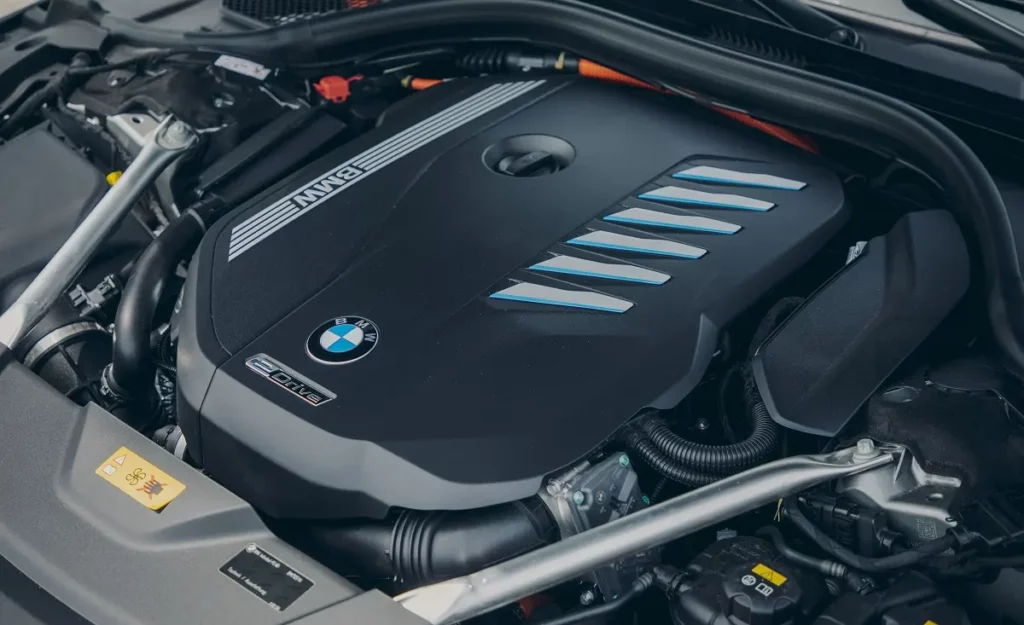
A faulty fuel pump or injector can be fixed for a relatively low cost. That won’t be the case if you run into trouble with the N74’s twin turbochargers. The wastegate, which regulates spool speed and the flow of exhaust gasses, is a part that has been reported to fail on the N74. This is usually accompanied by a knocking sound from the engine, typically caused by a worn actuator rod. If not rectified immediately, the issue can cause the turbochargers to blow.
Without considering the cost of labor, a new turbocharger can cost you a few thousand dollars. Watch out for fault codes for low boost or rattling sounds from the engine.
Water Pump Failure
The newer BMW engines, like the ones that power the 2021 BMW 7-Series, use an electric water pump instead of a traditional chain or belt arrangement. While this brings several advantages, it also comes with its share of problems. The water pump is an essential component in the regular operation of your engine as it pumps water to the radiator, which maintains the engine’s ideal temperature.
Although owners have experienced failure as early as 50,000 miles, a well-maintained, trouble-free water pump should last over 100,000 miles. You could be dealing with a failed water pump if you encounter an abnormally high engine temperature and a sudden drop in coolant levels.
Vehicle Maintenance Programs
BMW offers multiple maintenance packages on its newer cars, including the 2021 BMW 7-Series. The standard BMW Ultimate Care package includes scheduled maintenance for 3 years/36,000 miles, whichever comes first. You’ll also have access to Roadside Assistance for 4 years/unlimited miles.
Additionally, you can opt for the BMW Ultimate Care+ package that covers the brakes, wipers, and clutch, up to a specific mileage that varies depending on how much you pay.
Prices range from $700 to $6,449 for the BMW Ultimate Care+ 4 Bundle, which includes replacing the wear-and-tear components mentioned above for 7 years or 125,000 miles.
Is the 2021 BMW 7-Series Worth Buying Today?
The 2021 BMW 7-Series is the German manufacturer’s flagship offering for a reason. It comes with nearly everything that the brilliant engineers at BMW have to offer at the moment. This is why it remains a top choice among the high-profile individuals and executives. Whether you’re going to get behind the wheel yourself or be driven around by a chauffeur, there’s a 7-Series that’s just right for you.
With the 2023 BMW 7-Series coming in just a few months, this is as good a time as any to get your hands on an older 2021 example.


